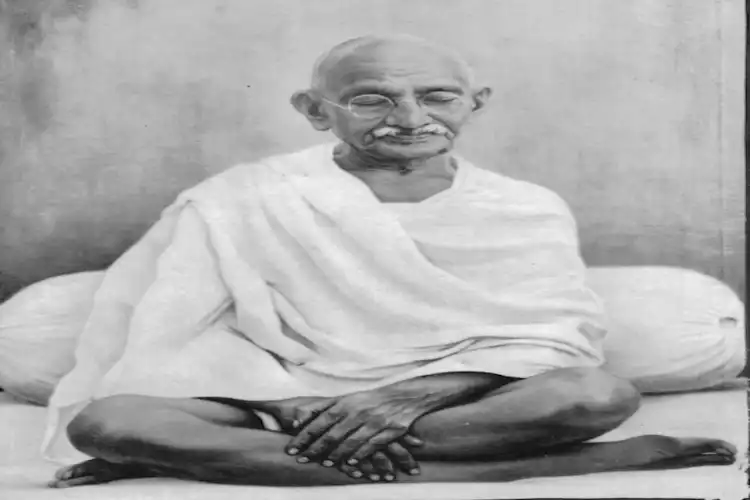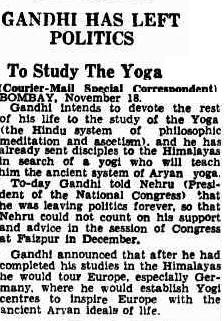
Saquib Salim
One morning in November 1936, the world woke up to shocking news. Newspapers across the world reported that Mahatma Gandhi, the leader of the Indian Freedom Struggle, had decided to quit politics to become a yoga guru.
The influence of yoga on Gandhi, his philosophy, and politics is one of the less talked about aspects of his personal development. J.F.T Jordens, who has extensively researched and written about Gandhi’s philosophy, notes that Gandhi discovered the idea of brahmacharya in 1903 “when he read and studied the Yoga Sutra by Patanjali, and two commentaries on it by M. N. Dvivedi and Vivekananda.”
International Yoga day
Veena R. Howard in her book Gandhi’s Ascetic Activism writes, “Gandhi often referred to Patañjali’s Yoga Sūtras to support his argument for observance of the five yamas (restraints).” Gandhi, in 1926, published his interpretation of Gita under the title Anasakti Yoga. To quote him, “Anasakti certainly means freedom from attachment to anything concerning oneself and one’s relations, but also such deep attachment . . . to Truth, to God.” Gandhi believed Yoga to be the ultimate political, social and spiritual philosophy. Veena points out, “A prominent modern scholar of yoga philosophy, Georg Feuerstein considers Gandhi as a “superb example of a karma-yogi and action” and posits that “the fulcrum of Karma-Yoga is our ability to transcend all karmic necessity in our consciousness.”

The headline of the day
In 1924, Gandhi wrote about yogic meditation, tapas, in Navjivan. He wrote, “There are instances of tapas [penance] at every step in Hindu mythology. Parvati desired to win Shankara and she took to tapas. Siva did something wrong and so he undertook tapas. Vishwamitra was the very incarnation of tapas. When Rama went into exile, Bharata plunged into yoga discipline, practiced austere tapas, and wore out his body. . . . I have not the strength today to narrate the story of my tapas but I state this much that I cannot possibly live without tapas.”
It is no wonder that Gandhi decided to abstain from political life and become a yogi. According to reports, “Today Gandhi told Nehru (President of the National Congress) that he was leaving politics forever so that Nehru could not count on his support and advice in the session of Congress at Faizpur in December.” Gandhi, according to the reports, said that he was searching for a good yoga guru and planning to move to the Himalayas for meditation. Gandhi planned to take the message of yoga to the European world and establish a yoga center in Germany to inspire Europeans with the Aryan way of life.
It is important to understand Gandhi’s philosophy through the ancient knowledge of yoga. The influence needs to be relooked into and the power of the yogic needs to be resurrected.
(Saquib Salim is a historian and a writer)
